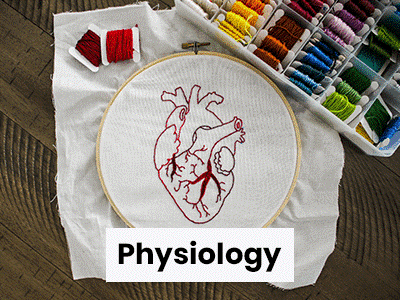Physiology is the study of how the human body works. It describes the chemistry and physics behind basic body functions, from how molecules behave in cells to how systems of organs work together
Includes
Human physiology is the study of how the human body's systems and functions work together to maintain a stable internal environment. It includes the study of the nervous, endocrine, cardiovascular, respiratory, digestive, and urinary systems, as well as cellular and exercise physiology. Understanding human physiology is essential for diagnosing and treating health conditions and promoting overall wellbeing.
It seeks to understand the mechanisms that work to keep the human body alive and functioning,[4] through scientific enquiry into the nature of mechanical, physical, and biochemical functions of humans, their organs, and the cells of which they are composed. The principal level of focus of physiology is at the level of organs and systems within systems. The endocrine and nervous systems play major roles in the reception and transmission of signals that integrate function in animals. Homeostasis is a major aspect with regard to such interactions within plants as well as animals. The biological basis of the study of physiology, integration refers to the overlap of many functions of the systems of the human body, as well as its accompanied form. It is achieved through communication that occurs in a variety of ways, both electrical and chemical
